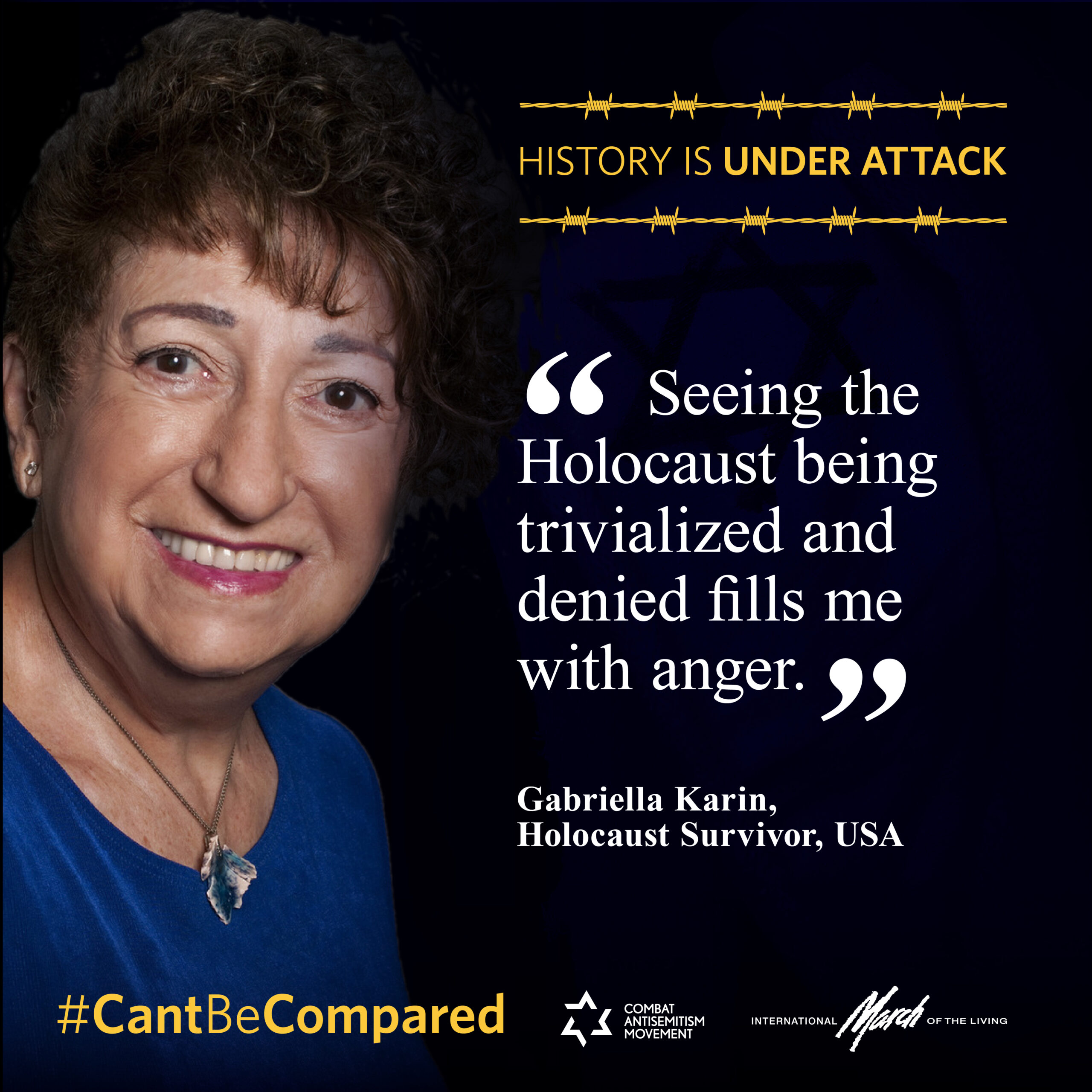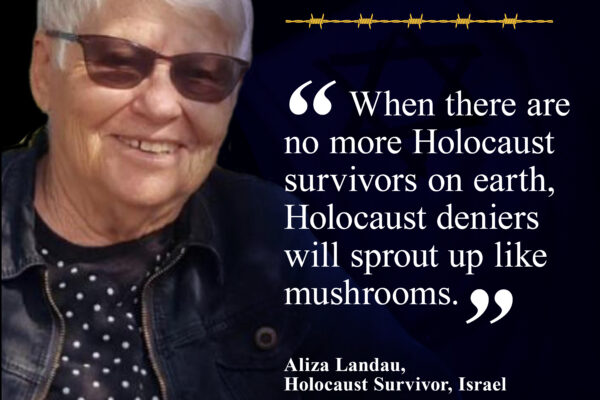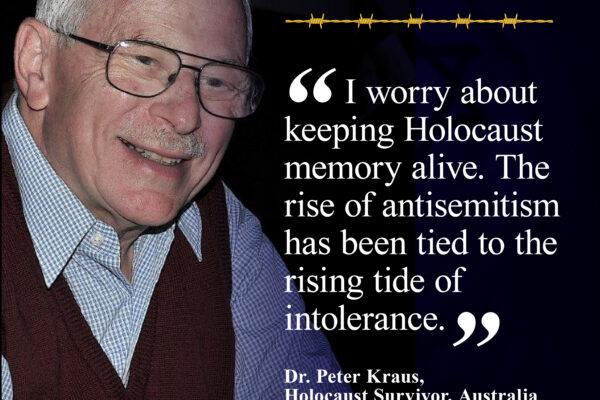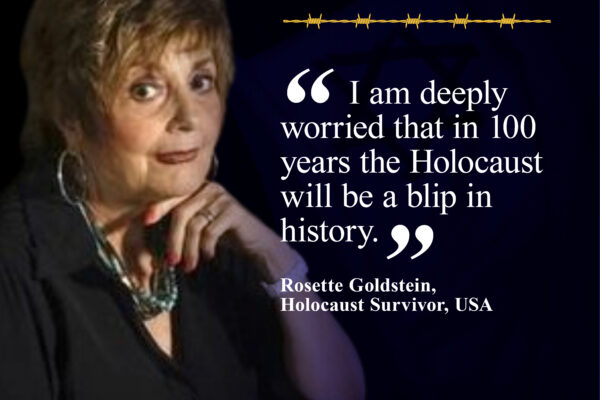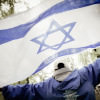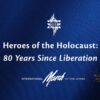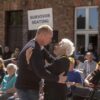‘Education of our Jewish heritage and history is the best weapon to counteract Holocaust trivialization and denial.’
By Monise Neumann, International March of the Living
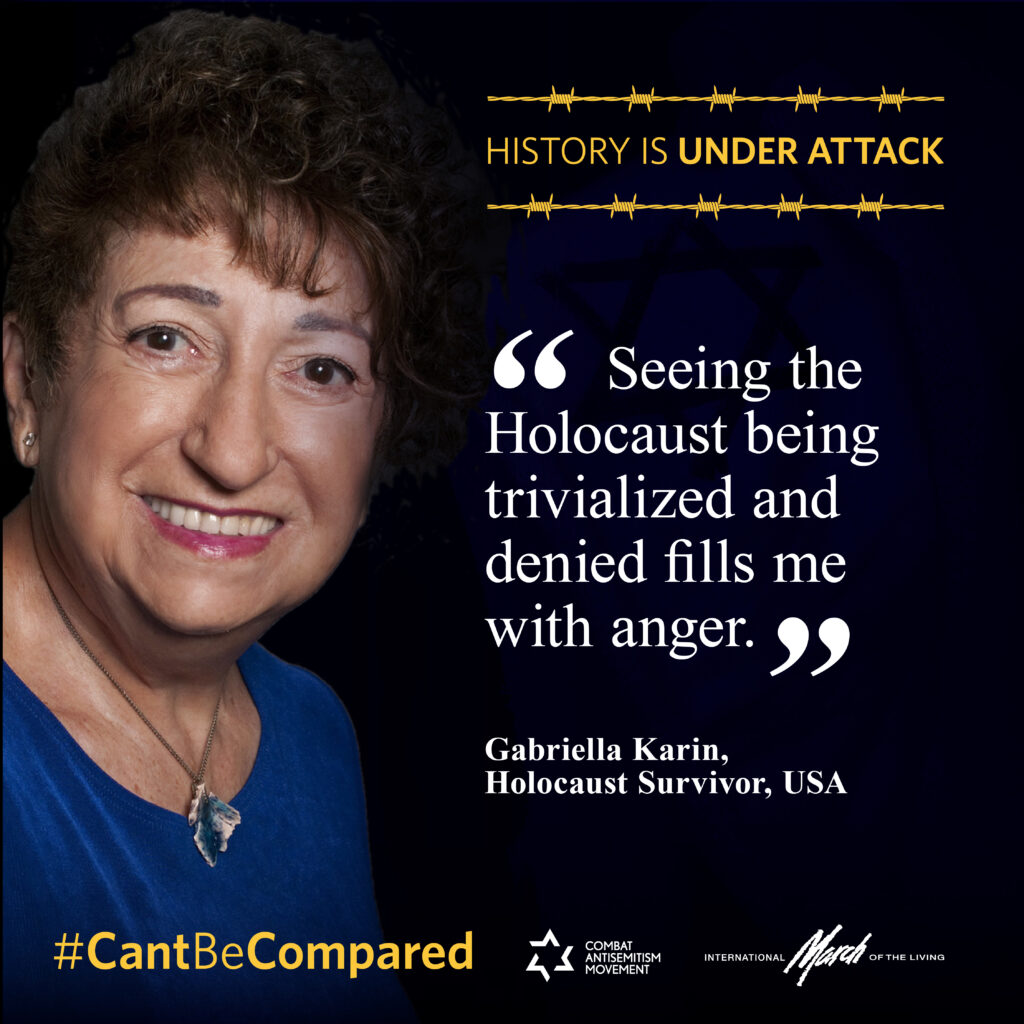
Born to Jewish parents who operated a delicatessen in the heart of Bratislava (Slovakia), Gabriella Karin was just 11 when she and her family were forced into hiding to avoid deportation to a Nazi concentration camp. Saved by a righteous gentile, she recalls herself in a small, one-bedroom apartment where she and eight people were hiding: “Imagine for nine months sitting on a chair and not being able to move. I could not talk.”
Gabriella has dedicated her life to Holocaust education as a docent and speaker worldwide. She has traveled with the BJE Los Angeles March of the Living delegation to Poland and Israel every year since 2012. She is a renowned sculptor and uses her work to dramatically depict the horrors of the Holocaust and her hope for a more peaceful future.
Ahead of the Survivor Speaker Series with Gabriella Y. Karin held on January 20, 2022, Gabriella spoke with Monise Newman on the importance of Holocaust education.
Q: You have been sharing your story for many years and have spoken to many students. What have you learned about yourself through this process and what, if anything, has surprised you about the questions asked?
As I kept telling my story to the many impressionable young students, I was appalled to see a great level of ignorance about the history of the Holocaust. The most basic facts were a revelation. I was gratified to have made a deep impact on them. In the process, I’ve experienced an inner strength and compulsion to go on teaching the lessons of the Holocaust and the dangers of apathy.
Q: Have you always shared your story, or did you begin sharing your story later in life? What prompted you to do so?
I began sharing my story later in life, as I realized that Holocaust memory is becoming trivialized, denied, and outright denigrated by so-called historians like David Irving. It awoke in me the anger that prompted me into action. To make visual art instead of written words explains the tragedy of the Holocaust in a different way and this is what I am achieving.
Q: As Jews, we have seen a rise in antisemitism worldwide and, as Americans, we have seen a significant rise here at home. What do you attribute this to and what is your advice?
I feel that the global rise in antisemitism is a testimony to the ever-underlying Jew-hatred that’s been always seething below the surface and instilled, first by the Christian church over the centuries, and in our time by the Israeli-Palestinian conflict, as an excuse. Its poison is now being spread by the extreme Left and the extreme Right to gain political power. My advice on how to fight it is by incessant education of the masses and the extensive use of the legal tools available in the US. The Jews are no longer powerless, and we must use our power to fight back against our enemies.
Q: Do you feel the world has learned the lessons of the Holocaust?
No, I don’t believe that the world wants to dwell on the lessons of this Holocaust tragedy.
Humankind seems too preoccupied with their everyday worries about hunger, disease, and poverty of the world’s majorities. The West would rather sweep the Holocaust under the rug or into the dustbin of history and not be always reminded of their collective responsibility!
Q: Holocaust denial is growing rapidly. How concerned are you for Holocaust memory in the future? Do you think that there is a chance that in 50 or 100 years from now the Holocaust will be erased from our history?
The Jewish people have so far been able to officially deflate this vicious denial, especially through the courts of justice. Yet, the prospect of preserving the memory and lessons of the Holocaust for the distant future depends entirely on the Jewish people’s efforts to untiringly remind the world about it. The annual commemoration of Yom HaShoah is an essential act of reminding the world that this tragedy must never be forgotten. Thank G-d for Israel to keep the flame of memory burning bright! Once the eyewitnesses of the Holocaust are no longer with us, the coming generations must take up the flame of memory and hold it high! It’s their sacred duty!
Q: When did art become a way of expression for you?
After retirement, I decided not to become an idle housewife. Instead, I enrolled in an art school and became fascinated with sculpturing art through the medium of clay. I already had an artistic background as a clothes designer and patternmaker so mastering the art of working with clay wasn’t too hard and became a passion for me.
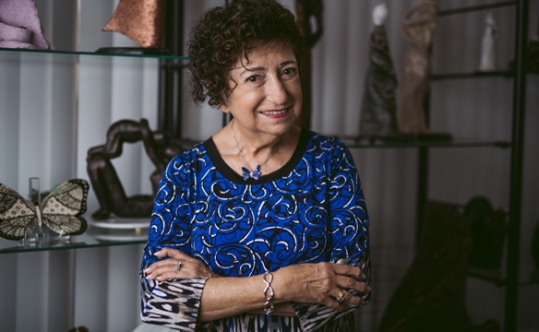
Q: What draws you to the March of the Living? What have you gained?
When I first became aware of the March of The Living program, it fascinated me. The idea of a worldwide gathering of Jewish people in solidarity, marching to and through Holocaust history, honoring those innocent millions that so brutally were murdered by the Nazis, just fired me up! It was a cause Holy to me, and I wanted to be an inseparable part of this movement!
What I have gained from this experience was a deep, gratifying, emotional balm that was soothing and healing…
Q: What is your message to a younger generation?
My message to the younger generations is: Do not ever be complacent! Do not ever be apathetic or indifferent to emerging evil! Always be keenly aware that any status quo can quickly change in a political firestorm. Stand firm and resolute against the enemies of freedom and equality! Educate yourselves in your Jewish heritage and rich history! These are the best weapons to counteract your enemies!
Gabriella and other Holocaust survivors from around the world are participating in the global #CantBeCompared campaign, speaking ahead of International Holocaust Remembrance Day, January 27, against a backdrop of growing trivialization of the Holocaust, especially in the context of the Covid-19 pandemic, which has seen comparisons made between pandemic restrictions and Nazi measures against Jews during the Holocaust.
Watch the recording of our Survivor Speaker Series with Gabriella Karin by clicking on the video player below:
